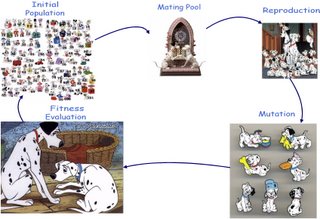Hi Sam, I hope that you are doing well. I have read al most all of your significant articles and your books, namely, "The End of Faith" and "A Letter to a Christian Nation". So far, I have only been a passive reader of your work. And despite the fact that I am a Muslim, I enjoyed it. It gave me an alternative view on religion. An alternative view on how other human beings can look at religion. The answer to why I read your books is rather complicated and has many factors. But the most compelling answer to this, in my point of view, is that I have lived in Europe for quite a few years and the way the European society normally functions and the way the people are is often times extremely impressive. The people are good natured, honest with their work and candidly welcoming and despite all of this the countries are secular and people are mostly agnostic or atheistic. This is impressive. I wonder why an average European atheist is so nice. Nice to the extent that he normally doesn't know anything bad. This drew me closer to your book titled "The End of Faith" around last year this time. I found it extremely well written and thorough. In the book you have a special chapter titled "The problem with Islam" which is also extremely well written and the excerpts from which can be found elsewhere on the web. I have to admit that even though I am a Muslim, I cannot completely argue about the portions of the book firstly because my knowledge about the Quran is limited and secondly because you have raised some logical issues in it that require special attention to detail by a learned and an unbiased person (possibly an Islamic scholar) who has specialized in Islamic studies. I also have to admit that after reading the book, I, for the first time, not only understood atheism but also seriously considered it. This is to say that I had to ask this question to myself again and again that, is there really a God? a divine force who has created the universe and the life? Or stated simply, Is Allah really the God or just a mythical figure. I remember that I was in Copenhagen around that time trying to look for a postdoc position in a nice Danish university.
After having lived in Europe and after having studied and worked there for a while I believe that religion is not necessarily required to organize the society. Actually the way things have been, it is not required at all. Human beings, if they have a will and desire to improve things, can self-organize themselves and their surroundings.
I think that a very viable option for you, and I seriously recommend that you do it, is to engage in open dialogues with religious (Islamic) scholars. I think that this is very important that you ask openly and honestly, on the media, various questions related to the verses of Quran specially where the God has demanded to kill the infidels. This is extremely important for the society to understand as well. So, for instance, you can challenge an Islamic scholar of your choosing to come to CNN or BBC, for instance, to address your questions. This would otherwise be very interesting for the general education of masses.
I like your work on free will. I will have to spare ample time to read and understand it.






I have two very important questions, but I would like to go with the preamble first.
Given the current political upheaval in Pakistan, the US would be willing to deal with Sharifs as well, provided they play with the rules. An analysis about pakistani political options has been given as top stories today in Dawn. This is no surprise. As a matter of fact, US is somewhat fed up, tired and drained due to sustained warfare; it needs a break. There is an increasingly growing antiwar sentiment within the US as well; please read of the suicide epidemic. If this happens (that US packs up or soothes up its policy) it will give a lot of breathing air to Sharifs automatically: they pose to be right-wing Pakistanis, and US would be leaving for its own reasons, the latter may always be used by the Sharifs to create some kind of an epic about them.
1) Given this the most important question that should be asked from Sharifs is that what EXACTLY is their stance on relations with the US now and when they come to power. The decision boundary regarding this has been very foggy, this will turn out to be very intricate when the fog shed. However, the Sharifs should “educate” the people precisely as to what their view is about being anti-US or pro-US, from various vantage points, for I think that from deep inside Sharifs ARE pro-US. This is the most important question that stares any Pakistani politician i.e. How will they align their foreign policies with the WEST.
2) I have a very strong notion that the new recruits into the PML-N are once again completely inept donkeys. i) What are their criteria for distribution of tickets for elections. ii) how do they propose to bring about a democratic change with their donkeys given that an average army officer has a reasonably good BA from PMA, how do they propose to put the ARMY back to the barracks with their donkeys?
Adil Raja